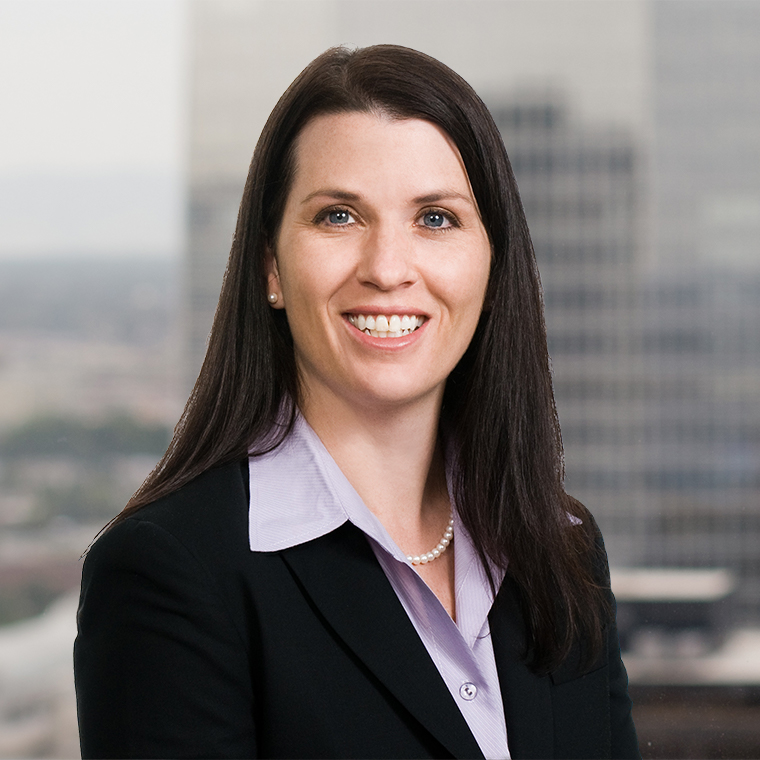Introduction
On April 9, 2020, the Federal Reserve announced actions to implement the Main Street Lending Program authorized under Section 13(3) of the Federal Reserve Act. The program consists of two credit facilities aimed at small and medium-sized businesses (Main Street Loan Facilities), consisting of the Main Street New Loan Facility (New Loan Facility) and the Main Street Expanded Loan Facility (Expanded Loan Facility). The New Loan Facility is intended to facilitate the origination of new loans, while the Expanded Loan Facility is directed at extending additional credit under existing loan facilities. The Department of the Treasury, using funds appropriated to the Exchange Stabilization Fund under Section 4027 of the CARES Act, will make a $75 billion equity investment in a single common special purpose vehicle (SPV) in connection with the Main Street Loan Facilities to provide up to $600 billion in loans.
The Main Street Loan Facilities will provide four-year loans to US companies employing up to 10,000 workers or with annual revenues in 2019 of less than $2.5 billion. Loans issued under the Main Street Loan Facilities (Eligible Loans) are not forgivable, but Eligible Borrowers (as defined below) may defer payments of principal and interest for up to one year. Loans issued under the Expanded Loan Facility will potentially have higher loan availability and a few structural differences to account for upsizing through an existing loan facility; otherwise, the terms and conditions under each Main Street Loan Facility will be substantially the same and both will require the Eligible Borrower to attest that, among other things, it will follow the compensation, stock repurchase and capital distribution restrictions that apply to direct loan programs generally under Section 4003(c)(3)(A)(ii) of the CARES Act.
The following are the principal terms and eligibility criteria for the Main Street Loan Facilities and a brief discussion of key questions that borrowers and investors may have about the proposed programs.
Borrowers Eligible for Main Street Loans
Unlike the Paycheck Protection Program created under the CARES Act and administered by the US Small Business Administration, there is no 500-employee size test or affiliation requirement under the Main Street Loan Facilities. Instead, an Eligible Borrower can be any business (a) with up to 10,000 employees or up to $2.5 billion in 2019 annual revenues, (b) that is created or organized under the laws of the United States and (c) that has significant operations and a majority of its employees based in the United States.
Notably, borrowers may participate in both the Paycheck Protection Program and the Main Street Loan Facilities. However, borrowers that participate in the Expanded Loan Facility may not also participate in the New Loan Facility (or vice versa) or the Primary Market Corporate Credit Facility.
Loans Available Under the Main Street Loan Facilities
Each Eligible Loan will be a term loan with the following features:
- Four-year maturity with amortization of principal and interest deferred for one year and an adjustable rate of SOFR + 250–400 basis points that may be prepaid without penalty.
- The loan will have a minimum loan size of $1 million and
- in the case of a new loan tranche under the Expanded Loan Facility (Expanded Loan), a maximum loan size for the new loan that is the lesser of (i) $150 million, (ii) 30% of the Eligible Borrower’s existing outstanding and committed but undrawn bank debt or (iii) an amount that, when added to the Eligible Borrower’s existing outstanding and committed but undrawn debt, does not exceed six times the Eligible Borrower’s 2019 EBITDA; or
- in the case of a loan under the New Loan Facility (a “New Loan”), a maximum loan size that is the lesser of (i) $25 million or (ii) an amount that, when added to the Eligible Borrower’s existing outstanding and committed but undrawn debt, does not exceed four times the Eligible Borrower’s 2019 EBITDA.
Loan Participations and Payment Priority Under the Main Street Loan Facilities
Under the Main Street Loan Facilities, the Federal Reserve will lend to the SPV on a recourse basis. The SPV will purchase 95% participations in the Eligible Loans at par value from participating lenders. Lenders (Lenders) will retain 5% of each Eligible Loan.
The SPV and each Lender will share risk in the Eligible Loan on a pari passu basis.
Any collateral securing an Expanded Loan, whether such collateral was pledged under the original terms of the existing loan facility or at the time of upsizing, will secure the Expanded Loan on a pro rata basis. The New Loans under the New Loan Facility will be unsecured.
Additional Requirements and Restrictions for Eligible Loans
Eligible Borrowers and Eligible Loans under each Main Street Loan Facility will be subject to the following additional requirements:
- Proceeds of the Eligible Loan may not be used to repay or refinance preexisting loans or lines of credit made by the Lender of the Eligible Loan. Neither the Lender nor the Eligible Borrower may cancel or reduce any existing lines of credit outstanding to the Eligible Borrower. In addition, the Eligible Borrower may not cancel or reduce any of its outstanding lines of credit with any other lender.
- The Eligible Borrower may not repay any other debt of equal or lower priority, with the exception of mandatory principal payments, unless the Eligible Borrower has first repaid its Eligible Loan in full.
- The Eligible Borrower must require financing due to the exigent circumstances presented by the COVID-19 pandemic, and must attest that, using the proceeds of the Eligible Loan, it will make reasonable efforts to maintain its payroll and retain its employees during the term of the Eligible Loan.
- The Eligible Borrower must follow compensation, stock repurchase and capital distribution restrictions under Section 4003(c)(3)(A)(ii) of the CARES Act, which impose restrictions on the following activities of the Eligible Borrower during the term of the loan and for 12 months following the last date that the Eligible Loan is outstanding:
- Share Repurchases: The Eligible Borrower may not repurchase an equity security that is listed on a national securities exchange of either the Eligible Borrower or any parent company of the Eligible Borrower while the direct loan is outstanding, except to the extent required under a contractual obligation that was in effect on March 27, 2020. While this restriction will not apply to privately held companies, it will impact public companies. In addition, investors seeking to exit from equity positions in listed companies will need to look exclusively to secondary sales for liquidity, consistent with the practice of most controllers and insiders previously.
- Dividends on Common Stock: The Eligible Borrower is not permitted to pay dividends or make other capital distributions with respect to its common stock. This restriction could be problematic for many dividend-paying public companies and private equity–backed companies. Many private equity–backed operating companies are structured with parent holding companies as their direct owners and these holding companies do not have any sources of funds without distributions from the operating company. In addition, some of the operating companies are pass-through entities for tax purposes. Most loan agreements with these companies allow for permitted distributions for operating expenses and tax distributions. In addition, if a platform company is owned by a holding company and the platform company is sold or completes an initial public offering, this structure would prohibit sales or IPO proceeds from being distributed to owners during the 12 months following the transaction and related payoff of the loan.
- Executive Compensation Limits: Any officer or employee whose total compensation (including salary, bonus, awards of stock and other financial benefits) exceeded $425,000 for calendar year 2019 may not receive total compensation in excess of their 2019 total compensation or severance benefits that would exceed twice their 2019 total compensation. In addition, an officer or employee whose total compensation exceeded $3 million for 2019 may not receive compensation in excess of the sum of (a) $3 million plus (b) 50% of the amount by which their 2019 total compensation exceeded $3 million. Oftentimes, employees in investor-backed companies receive less in annual base pay and salary than those in peer companies do, and instead participate in equity compensation arrangements that are designed to return value to participants at the time that the company is recapitalized, sold or taken public. Total compensation is defined to include “stock awards and other financial benefits.” “Stock awards” is a very general term and presumably includes any type of equity compensation awards, including awards in entities that are not corporations. How and when to value stock awards for purposes of the limitations is not clear: the awards could be treated as compensation received at the time of grant and valued then, or at the time the employee realizes the award, or somewhere in between, for example at the time of vesting of the award. Guidance is needed to understand what is included in the definition of stock awards and how they are valued to determine if the total compensation limits are exceeded.
- Conflict of Interest Prohibition: Lenders and Eligible Borrowers will each be required to certify compliance with the conflicts of interest prohibition in Section 4019(b) of the CARES Act. Section 4019(b) addresses potential conflicts of interest associated with the emergency relief funds from the federal funding facility established through the US Department of the Treasury and the Federal Reserve. This section restricts businesses that are directly or indirectly owned by the President, senior executive branch officials or members of Congress—or certain of their immediate family members—from participating in relief funding. It should not have much, if any, impact on most borrowers.
Facility Fees and Termination
An Eligible Borrower will have to pay its Lender a fee of 100 basis points of the principal amount of the New Loan or the upsized tranche of the Expanded Loan, as applicable. With respect to a New Loan, the Lender will be required to pay the SPV a facility fee of 100 basis points of the principal amount of the loan participation purchased by the SPV; the Lender may require the Eligible Borrower to pay this fee. The SPV will pay a Lender 25 basis points of the principal amount of its participation in any Eligible Loan per annum for loan servicing.
Eligible Lenders
Only US insured depository institutions, US bank holding companies and US savings and loan holding companies are allowed to participate as Lenders in this program. This could be problematic for Eligible Borrowers that have an existing credit facility with a nonbank direct lender that is not available to participate in the Expanded Loan Facility (limiting such Eligible Borrowers’ potential participation, if any, in the Main Street Loan Facilities to the New Loan Facility).
Comment Period and Ongoing Developments
The Federal Reserve is accepting comments on the proposed terms of the Main Street Loan Facilities until Thursday. We will continue to closely monitor developments relating to the Main Street Loan Facilities and participation in these programs. Should you wish to comment, or if you have questions regarding these facilities, please contact the authors of this alert identified below or other lawyers at WilmerHale with whom you have regular contact.





